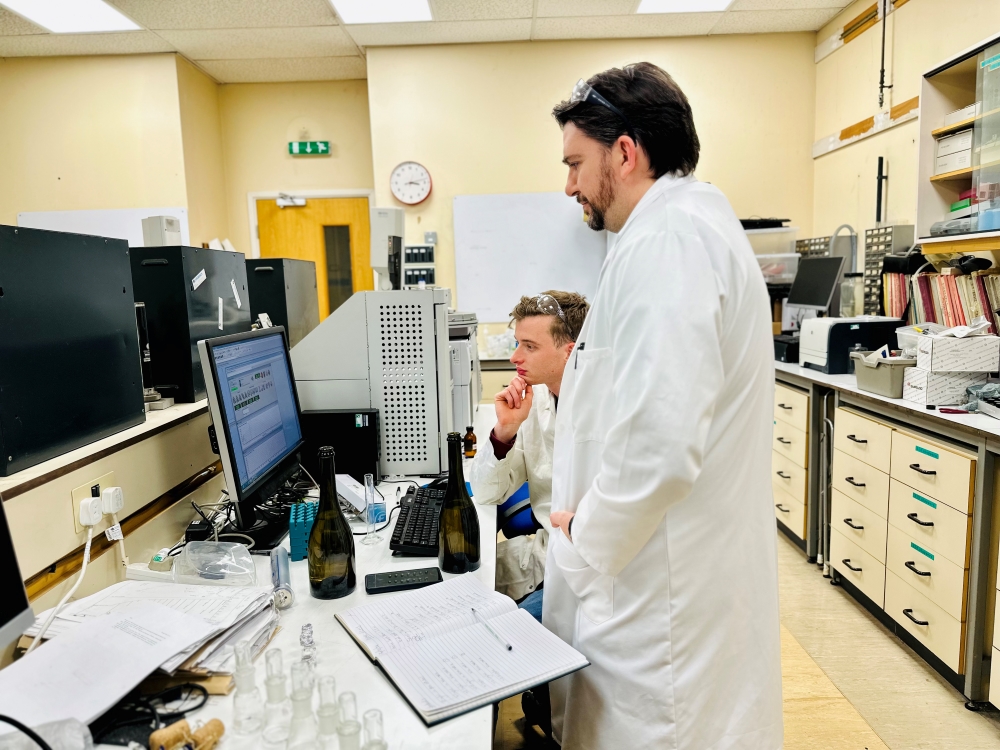Collaboration is a key feature of our work at NRI. Through high quality collaborative research, knowledge exchange and learning, NRI works to find innovative solutions to local and global challenges. This culture has led to collaborations with local businesses and institutions, helping to build capacity and facilitate the development of locally robust but also globally relevant innovations.
The collaboration between NRI and Plumpton college, a further and higher education college in East Sussex specialising in land, agriculture and environmental education, exemplifies this synergistic spirit. The University of Greenwich has an important role in validation of higher education degrees awarded by local colleges like Plumpton College. This arrangement has created the opportunity for students at such colleges to conduct their research and analysis at NRI, taking advantage of research facilities that they wouldn’t otherwise have access to at their colleges. ‘There is an agreement in principle to allow mutually beneficial research projects access to our analytical facilities, or as part of a consultancy type arrangement’, said Dr Steven Harte, Post-doctoral organic chemist/chemical ecologist at NRI.
‘The opportunity to make use of the facilities at NRI arose from the University of Greenwich taking on the accreditation of my master’s degree at Plumpton College’, said Hugo Woodhouse, who recently came to do his research at NRI. He is examining the effects of carbon dioxide generated during fermentation under higher than typical pressure, on the generation and retention of aroma compounds in wine. Put simply, he wants to find out how elevated pressure during fermentation affects the aroma of wine and, in his words, answer the question, ‘why does my wine smell so good?’
Hugo’s research investigates the untapped opportunity to potentially moderate wine aroma profiles beyond the currently employed means of fermentation control – typically temperature control. His findings will provide insights into the possibility of improving the aroma of sparkling wine by using variations in pressure during the fermentation process. This research is relevant for the UK wine industry as growing conditions such as inadequate ripening make fruity/aromatic sparkling wine styles like prosecco hard to achieve. ‘As well as contributing to the education of a promising student, improvement in the wine odour would improve the taste of the wine and would be a big contribution to the British wine making industry’, added Dr Harte.
NRI’s strong collaborative spirit ensures that our world-leading expertise and state of the art facilities can be beneficial to the local community, driving transformative change on the local, national and international scale. For example, our bespoke Food Accelerator Programme is supporting and mentoring local food businesses and catalysing innovation and entrepreneurship in healthy and sustainable food. Dr Harte said: ‘NRI is actively engaged in and encourages future research collaborations and consultancy type projects within the food and drink sector allowing access to our analytical chemical knowledge and facilities.’ More broadly, NRI is helping address major challenges like poverty, climate change, food and nutrition insecurity, and gender and social inequality worldwide. On the academic front, our dedicated teaching and research supervision is shaping the next generation of experts and change makers.
From seemingly small steps like working with local institutions and businesses to multi-partner international collaborations, NRI is helping deliver greater impact, aware that the challenges we face are complex and interrelated, transcending individual academic/research disciplines. Hugo summed it up fittingly: ‘Collaboration with NRI has allowed me to take my research to a far greater depth. If the research requirements are compatible, and mechanisms for collaboration are in place, then tapping into the facilities and knowledge base available at NRI can be highly beneficial for any ambitious researcher. I sincerely hope this arrangement continues well into the future with Plumpton and other similar institutions looking to broaden their research capabilities.’


